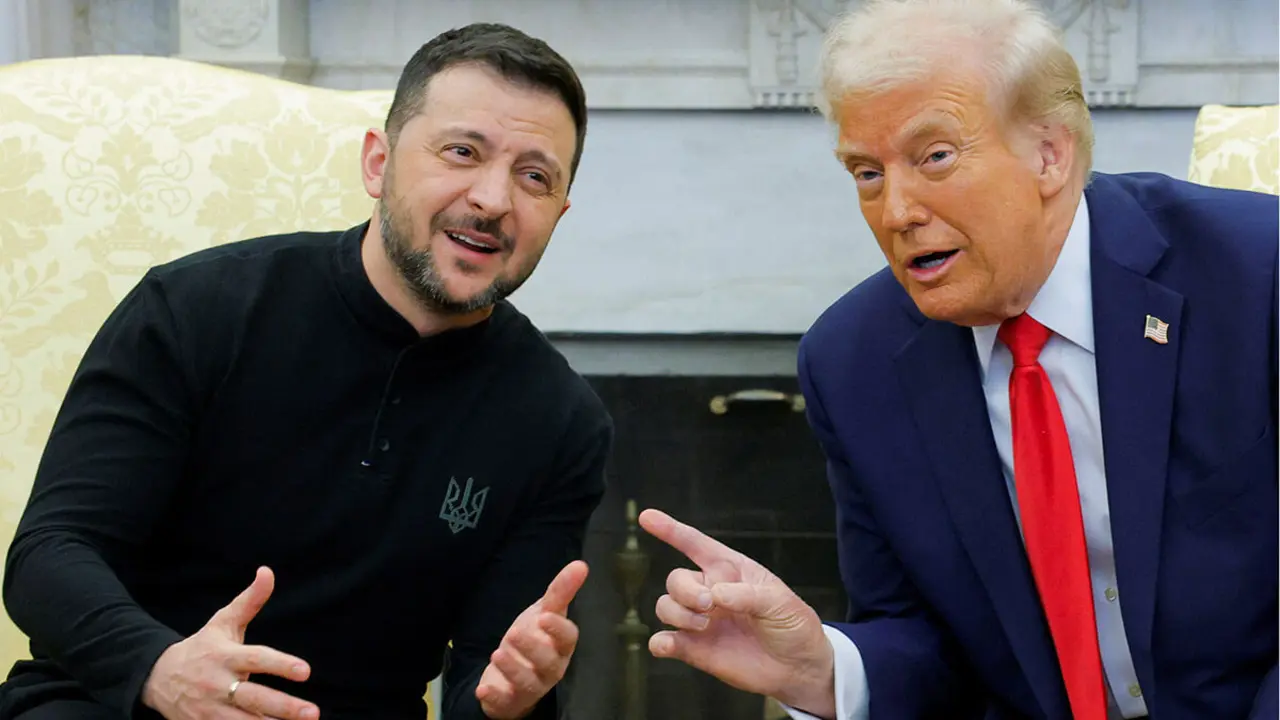Who is Libya's new prime minister?

Last Friday in Geneva, what could be a definitive step towards a solution to the Libyan conflict was decided. After several days of sessions and a failed first round, the list headed by Mohammad Younes Menfi won by 39 votes against Aguila Salé's list, which obtained 34. The winning list managed to turn it around, since in the first round it was 5 votes behind Salé's list.
In addition to Menfi as chairman of the Presidency Council, a body completed by Abdullah Hussein Al-Lafi and Mossa Al-Koni, the new transitional government also includes the businessman Abdul Hamid Mohammed Dbeibah as prime minister. Dbeibah is a controversial figure, having come under suspicion late last year for trying to influence members of the Libyan Political Dialogue Forum, something the Misrata businessman fervently rejected.

Dbeibah is a well-known businessman in the Tripolitanian region. He was born in the late 1950s in Misrata and has dedicated his life to business, especially construction, although he has always been close to the Libyan political elite. In fact, he was for a time in charge of Al-Ittihad, the country's football doyen.
Dbeibah's family has been closely linked to business and the infrastructure sector, and he was able to take advantage of the industrial and economic oil boom that the country experienced during the Qadhafi era. During the Gaddafi regime, Dbeibah headed a state-owned construction company, the Libyan Investment and Development Company, for two decades, and has therefore always been in the second line of the Libyan elite and very influential in the investment sphere, something that led him to be investigated for possible embezzlement. According to the British press, based on information revealed in the Panama Papers, the Dbeibah family has properties in the UK that were acquired by siphoning off funds through front companies.

The current prime minister also had the support of his uncle, Al-Dbeibah, also a businessman, although in his case linked to the audiovisual sector. Abdul Hamid's uncle owns a satellite broadcasting channel, Salam, located in Turkey, a fundamental aspect that shows that relations between the Dbeibahs and Turkey are close. Indeed, his candidacy was one of the most strongly supported in Ankara.
The new prime minister's profile is Islamist and close to the Muslim Brotherhood. Hence Turkey's commitment to him. It is not in vain that Misrata is the epicentre of the Islamist militias which, before the arrival of Syrian mercenaries sent by Turkey, were vital for the GNA to sustain Tripoli.
Dbeibah has already had time to speak to Turkey's Anadolu Agency, to which he stressed his desire to strengthen ties with Turkey, which he considers "an ally, friend and brother country". The new prime minister also pointed out that "Turkey can play a fundamental role in helping the Libyans achieve their objectives". The relationship between Tripoli and Ankara could be decisive, for better or worse, for the future of the country.
The new government has 21 days to present the composition of the Cabinet, something that will have to respond to geographical criteria, with the aim of making it as cross-cutting as possible and to be ratified by Parliament, something that must be done within 21 days of the announcement of the rest of the names of this transitional government.

In addition to Dbeibah, the figure of Menfi may also have an impact on the direction of the country. Although he hails from Tobruk, in the Cyrenaica region, this Libyan diplomat has shown himself to be opposed to the offensive carried out by Khalifa Haftar's National Liberation Army. As a result, it remains to be seen whether he will finally get Tobruk's ratification.
Menfi served for several years as Libya's ambassador to Greece, until he was expelled from Athens following the Turkish-Libyan territorial waters agreement. Menfi was also involved in politics after the fall of the Gaddafi regime. The diplomat was a member of the General National Congress, which was in force between 2012 and 2014 in the country. As well as opposing the LNA offensive, Menfi has repeatedly voiced his support for Fayez al-Sarraj, who until Friday held the leadership of the country, or at least the Tripoli area.
He is joined on the Presidency Council by Mossa Al-Konni and Abdullah Al-Lafi. The former was also a diplomat, albeit during the Qadhafi era. Al-Koni has been one of the nominees from the southern region, Fezzan, as he is a member of one of the Tuareg tribes - in fact, he was consul general in Mali. Al-Koni has held various positions in the political organisations that followed the Gaddafi regime. Al-Lafi, on the other hand, comes from the Tripolitanian region in the west of the country and is a member of the House of Representatives.

The international community has welcomed Friday's election with optimism. The United Nations, the United States and the European Union have expressed their satisfaction with the results, and hope that a new period of stability will begin in the country that will allow Libyan society to move forward. They have also praised the role of UNSMIL, led by Stephanie Williams, in the mediation and persistence in moving towards the goals set.
It is also striking that the election was also held on the side of the LNA and Ankara, rivals on the ground. The General Command of the Libyan National Army has congratulated the Libyan people on the result, it said. It also thanked UNSMIL and its envoy for their efforts. The Arab League did not want to be left out of the congratulations either, and offered its full support to the new transitional government.








